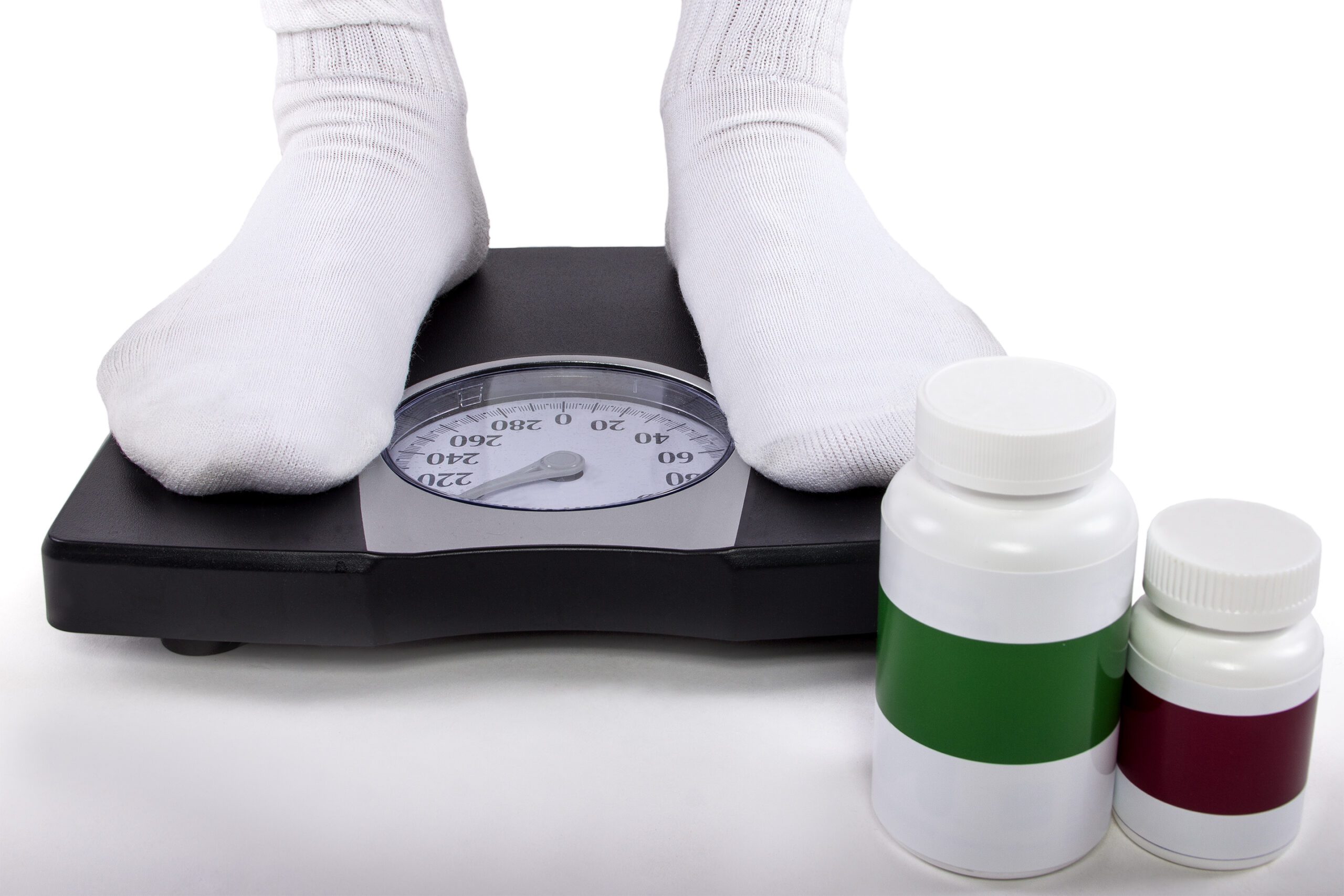The Reality of Bipolar Disorder And Weight Gain
January is the time when the fitness industry hypes up its message of losing weight for the new year. Since many people gained weight during the COVID pandemic, I know for a fact you will hear the message, “Get rid of that COVID weight as your New Year’s Resolution!”
Whether you live with bipolar disorder or not, I advise you NOT to give in to the New Year’s weight-loss hype. Getting through the COVID pandemic has been a matter of survival. Feel proud that you have been able to weather this past year – 2020.
The Medical Model
I utilize the medical model approach to manage my bipolar disorder. Medication management is a component of this approach and factors in my treatment plan.
When it comes to medication, the amount of potential side effects ranges in both type and severity. Some side effects are more tolerable than others.
We all have our baseline for what side effects are acceptable – and what we can live with – when it comes to medication management.
I have found weight gain to be one of the most bothersome side effects in the long-term management of my bipolar disorder.
The Reality of Side Effects
Side effects from medications impact our lives and directly impact our overall quality of life. You have to determine which side effects you can tolerate and which ones you cannot.
I have a very low tolerance for side effects. This is one of the reasons it took me close to a decade to find a combination of medications I could tolerate.
Weight Gain
Throughout the years, countless medical professionals have asked me, “Isn’t it better to be overweight and not suicidal?” They would go on to ask, “You should be okay gaining some weight, as long as you are stable, right?”
No, I am not okay with gaining an extra 40 pounds of weight. This is my quality of life you are talking about!
For me, it is a downward-spiraling effect. When I gain those extra pounds, my joints hurt and ache, my energy level goes down the tubes, and I feel like doing nothing. My exercise habits deteriorate, due to my lack of motivation and decreased energy level, along with my food choices. As a result, I begin adopting a negative self-image. The cycle spirals downward from there.
Generally speaking, weight gain as a side effect of a medication can be attributed to one of two things:
1) Increased appetite
2) Metabolic changes
If you can tolerate weight gain due to psychotropic medication, there are other medications to help stabilize your metabolism and appetite.
Blood Test for Weight Gain
If you want to lose weight but are finding it difficult, discuss a blood test with your doctor. It is important to rule out any physical reason for keeping you from losing weight.
Metabolic changes are a big reason for weight gain.
Let me give you an example. At one time, I started taking a particular medication, and I began gaining weight. I maintained the same healthy lifestyle, but I continued gaining weight.
My doctor suggested I get a blood test and see if there was something else going on. Sure enough, it came back that my thyroid was off kilter.
In this particular instance, it did not matter how much I worked out or the number of healthy food choices I made – I just kept gaining weight. Once I treated my thyroid, however, it returned to its proper functioning level. As a result, the pounds slowly melted away.
Ruling out physical issues will help you determine why you may not be losing weight. Be sure to consult with your doctor about why you may be gaining weight.
Medication and Weight Gain
Many times, there is no physical issue. Some medications will increase your appetite. When I say “increase your appetite,” I am speaking about binge-eating levels.
Years ago, I discovered a class of medication that always results in weight gain. Everyone reacts to medication differently. Some people I know have not had this same side effect of weight gain while taking this same class of medication.
For me, I decided I would no longer take this class of medication because of the unwanted weight gain. It does help stabilize me, though, so only in emergencies will I consume this class of meds. Even then, I will only take them for a short time.
As a side note – I do not like to mention actual medication names I have tried. This can lead to an inadvertent bias that could impact your decision to try a particular medication. Each person reacts differently to medications due to their biological and chemical makeup. One person may experience weight gain and another weight loss when consuming the same medication.
Quality of Life
Each person handles side effects differently. It is a good idea to go over all your options and ask yourself some questions:
Can I tolerate this side effect short term? What about long term?
Does the medication in question increase or decrease my quality of life?
Since bipolar disorder is a chronic illness, you should take into account your long-term quality of life.
Example From My Journey
I took a medication that caused weight gain. I had to take another medication to deal with the weight gain and yet another one to reduce my newly acquired hand tremors. The initial medication worked to stabilize my mood, but now I had to deal with the impact of weight gain on my body, plus the hand tremors.
I spoke with my psychiatric nurse practitioner, and under her supervision, she tapered me off the original medication, as I weaned onto a new one. Eventually, I was able to stop the other two medications for my hand tremor and weight gain.
In this particular case, it was only a matter of changing the first medication.
Luckily, we live in a time where pharmaceutical companies are continually creating new medications and improving the ones we have.
For that reason alone, do not get discouraged if one medication does not work, or if it stops working. There are plenty more out there. Sometimes simply adding a medication to your “cocktail” will change how you tolerate the other ones.
Just remember that you do not need to settle. You deserve a quality of life to thrive and stabilize – without those side effects you cannot tolerate.
Always chat with your doctor before you make any changes to your medication regimen. Never just stop your medication before talking to your doctor.
Ways to Deal with Weight Gain
There are tools and ways to help you lose weight. Some are easier to implement and maintain consistency with than others.
Take a look at the suggestions, and see what may be of benefit to you.
1. Create a Treatment Plan
A treatment plan has been an instrumental tool for my success in keeping my bipolar disorder in check.
A treatment plan outlines your schedule to manage bipolar disorder daily. As part of this plan, I follow a daily exercise program and make healthy eating choices.
The body and mind are very interconnected – I feel you cannot focus on one without the other. A treatment plan helps maintain a balance between the mind and body.
If you have not already done so, I suggest you create your treatment plan today.
2. Change Your Focus
My current focus, with proper exercise and making healthy eating choices, is to better my overall health. I want to improve my mental and physical health.
Previously, I focused on the scale. This increased my anxiety and de-motivated me. I found myself in the all-too-familiar, polarizing, all-or-nothing thinking.
By simply shifting my focus from the number on the scale to how I felt, I experienced greater success.
If you are not used to exercising, make sure you give yourself time to allow your body to adapt to this new stimulus.
I started by lifting light weights each day for 20 to 30 minutes per session. Each successive week, I added more reps and/or sets. I did this for about a month, utilizing the concept of progressive overload.
At first, I have to admit, I felt tired, sore, and fatigued. That was simply my body reacting to the introduction of weightlifting into my daily routine. Mentally, I became more focused, and I adopted a more positive perspective.
It took about a month for my body and mind to catch up with one another. Now, I have more energy, I sleep better, and I feel healthier.
3. Exercise and Eating Habits
Bipolar disorder is infamous for turning our minds against ourselves. This is true when it comes to our body weight.
It is extremely unnerving when you take steps to manage your illness, only to experience weight gain as an unwanted side effect.
Discouraging is the word that comes to my mind. Anxiety and self-sabotaging thoughts can become all-consuming.
To counteract this negative experience, let us take a practical and actionable approach.
Look at your overall caloric intake. You can do this by keeping a daily food journal, and recording everything you eat and drink. It can be as simple as writing it in a notebook or using an app on your phone, like Noom, to track the data. Just make sure that you keep a running tab of the total calories for the day.
Taking a Practical Approach
Each person has a basal metabolic rate (BMR). This is the number of calories your body needs if you sleep all day. You can calculate this number by using a BMR Calculator. Think of your BMR as the minimum amount of calories your body needs to function and survive.
To determine your daily caloric needs, take your BMR, and add enough calories to cover the type of exercise or activity in which you will engage.
Now, to create a deficit of calories in your diet, you need to focus both on exercise and what you eat. Food, or anything you consume, adds to your total caloric intake for the day. Any type of exercise will subtract from your total daily caloric intake.
Start with the total.
Now, add enough exercise to your routine to decrease your target by 500 calories. This will create a deficit. Make sure that you are in a deficit of 500 calories each day (for 7 days) to lose a pound per week.
If you are in a deficit of calories, you should lose weight. As long as there are no extenuating circumstances, such as physical issues or the inability to lose weight from a medication, you will lose weight.
4. Stop Looking at the Scale
Most people measure their weight-loss success based on the value of the scale. A better measurement is to take body measurements and find your body fat percentage.
Using other markers besides a scale may benefit you. Look at your wardrobe – how do you feel in your clothes? Are they looser and more comfortable?
You can gain weight on the scale, but still lose body fat, by gaining muscle. This is accomplished through resistance training.
The take-home message is you should not only look at the number on your scale. Gauge your success by how you feel emotionally and physically, too.
Last Thoughts About Weight Gain
With bipolar disorder, you cannot tackle every situation the same way as a neurotypical individual (i.e. an individual without mental illness). Our minds are just wired differently.
I know from my own experience that I have had all these expectations about how I feel I “should be” acting or what I “should be” doing.
If losing weight is your goal, reframe your focus.
Try making your goal to use exercise as a way to increase your quality of life and to help you feel better. My focus is on improving both my mental and physical health. I found a better result using this approach than to focus solely on the number on the scale.
Remember, if you are having issues with weight gain, talk to your doctor. It may be as easy as tweaking the dose of a medication or trying a completely new one, or even getting blood work done to see if some other issue is going on.
Living with bipolar disorder is not easy. I’m the first one to admit it. However, with the right treatment, you can successfully manage bipolar disorder on a daily basis and in the long-run.






